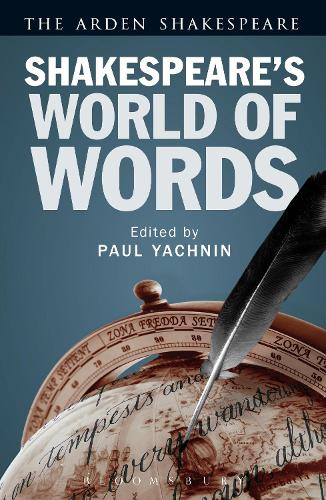
Shakespeare's World of Words
(Hardback)
Publishing Details
Shakespeare's World of Words
By (Author) Professor Paul Yachnin
Bloomsbury Publishing PLC
The Arden Shakespeare
22nd October 2015
United Kingdom
Classifications
General
Non Fiction
Literary studies: c 1600 to c 1800
Literary studies: general
822.33
Physical Properties
Hardback
304
Width 129mm, Height 198mm
426g
Description
Was Shakespeare really the original genius he has appeared to be since the eighteenth century, a poet whose words came from nature itself The contributors to this volume propose that Shakespeare was not the poet of nature, but rather that he is a genius of rewriting and re-creation, someone able to generate a new language and new ways of seeing the world by orchestrating existing social and literary vocabularies. Each chapter in the volume begins with a key word or phrase from Shakespeare and builds toward a broader consideration of the social, poetic, and theatrical dimensions of his language. The chapters capture well the richness of Shakespeares world of words by including discussions of biblical language, Latinity, philosophy of language and subjectivity, languages of commerce, criminality, history, and education, the gestural vocabulary of performance, as well as accounts of verbal modality and Shakespeares metrics. An Afterword outlines a number of other important languages in Shakespeare, including those of law, news, and natural philosophy.
Reviews
This impressive and wide-ranging volume brings together a variety of perspectives to consider the expansive world of words that unfolds on Shakespeares stage. One of the most welcome features of Shakespeares World of Words is its diverse body of contributors. Essays from literary scholars appear alongside those by theater practitioners and performance scholars The opening up of interpretive possibilities is one of this volumes best gifts. Readers come away with a renewed perspective on the many elements that render Shakespeares world of words so rich. * Shakespeare Quarterly *
Author Bio
Paul Yachnin is Tomlinson Professor of Shakespeare Studies and Director of the Institute for the Public Life of Arts and Ideas (IPLAI) at McGill University, Canada.
